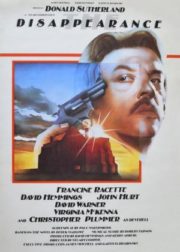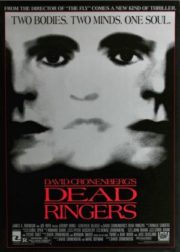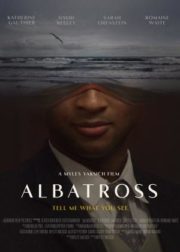
Submit your review | |
There Will Be Blood, directed by Paul Thomas Anderson and released in 2007, is an epic and visceral cinematic experience that stands as a true masterpiece of filmmaking. With its meticulous craftsmanship, powerful performances, and thematic depth, the film explores the dark undercurrents of ambition, greed, and the human condition.
At the heart of the film is Daniel Day-Lewis's tour de force performance as Daniel Plainview, an ambitious and ruthless oil prospector. Day-Lewis fully embodies the character, capturing his intensity, charisma, and descent into moral corruption. His portrayal is mesmerizing, commanding the screen with a magnetic presence that lingers long after the film ends. The supporting cast, including Paul Dano as Eli Sunday, delivers equally compelling performances, creating a dynamic interplay between the two central characters.
Paul Thomas Anderson's direction is nothing short of extraordinary. He brings a meticulous attention to detail to every frame, creating a rich and immersive world that reflects the harsh realities of early 20th-century America. Anderson's precise and deliberate camera work, combined with Jonny Greenwood's haunting score, amplifies the tension and intensity of the narrative. The film's visual composition, from sweeping landscapes to intimate close-ups, adds depth to the storytelling, capturing the vastness of the oil fields and the inner turmoil of its characters.
There Will Be Blood is a deeply layered and thematically rich exploration of power, greed, and the human psyche. The film delves into the corrosive effects of unchecked ambition and the destructive nature of capitalism. It examines the lengths to which individuals are willing to go in the pursuit of wealth and success, and the toll it takes on their relationships and their own humanity. Through its narrative scope and complex character study, the film invites audiences to question the ethical and moral implications of the pursuit of power.
The film's screenplay, written by Paul Thomas Anderson and inspired by Upton Sinclair's novel "Oil!", is a work of brilliance. It presents a compelling narrative that is both intimate and epic, capturing the essence of a transformative period in American history. The dialogue is sharp, evocative, and often delivered with a seething intensity by the actors, creating memorable and impactful moments.
There Will Be Blood is not only a cinematic triumph but also a technical marvel. The film's production design, costumes, and cinematography all contribute to its immersive and authentic atmosphere. The attention to detail in recreating the historical setting is impeccable, transporting the audience to the stark landscapes and booming oil towns of early 20th-century America.
In conclusion, There Will Be Blood is an exceptional and unforgettable film that showcases the power of cinema as an art form. With its masterful direction, remarkable performances, and profound exploration of human nature, it leaves a lasting impact on its viewers. It is a film that rewards multiple viewings, as each viewing uncovers new layers of its rich and complex narrative. There Will Be Blood is a testament to the talent and vision of Paul Thomas Anderson and stands as a towering achievement in filmmaking.
When Paul Anderson directs a movie, you know it would be one heck of a movie, and in ‘There Will Be Blood’ he shows again why he is arguably one of the best film makers alive.
This film is brilliantly made, from the production to the acting, and Daniel Day Lewis was as magnificent as ever.
I have never seen a movie made by Anderson that would not give everyone especially critics a long hard time to dissect and analyse. You owe yourself as a duty to watch this movie as soon as you can.
This movie is quite psychological, and even more impressively it expresses itself very well and gives so many reason to really sit down a think when you watch it.
























